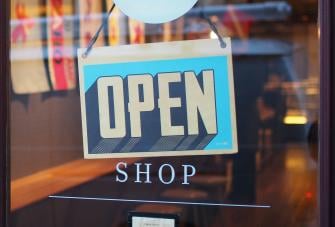How to Open a Liquor Store
Alcohol consumption is prevalent across the world, and demand is only increasing. With new drinks, such as seltzers and low-ABV beverages hitting the shelves, more people are finding a drink to love.
With such persistent demand, one would think that opening a liquor store would be quite easy. However, the market is competitive, and you need to proceed with caution to prevent expensive surprises or total failure.
Why start a liquor store?
People will always need a place to buy their drinks. While many gas stations and grocery stores carry alcohol, some only offer wine and beer. In some states, these stores are not permitted to sell any alcohol at all. And even in states that allow liquor sales in general stores, consumers often want a place to discreetly buy their alcohol.
Opening a liquor store is an excellent way to build a personal brand in your community. You get to interact with a variety of people, educate customers, and make money. Better yet, liquor stores often host events like wine and whiskey tastings, so you can add some fun to your daily routine.
Steps to open a liquor store
The process to start a store will vary depending on where you live. Some states have a few hoops to jump through while others offer a more streamlined process.
No matter where you live, you will likely need to follow most of these steps.
Conduct an honest personal assessment
Before you sink too much time into planning your liquor store, you should take a moment to consider why you want to start a store. Even if you are a seasoned entrepreneur, this business is unique and requires considerable effort to get off the ground.
First, look around your area and count the number of liquor stores. From this rough estimate, does it seem like there are too many stores? You don’t want to open a store if the market is crowded since that will only make your job much harder.
Next, think about what it takes to run a store. From finding suppliers and stocking shelves to managing staff and keeping up with your books, you will have to take on a ton of jobs. While you can certainly get help with these tasks, you are ultimately responsible for the results.
Last, think about the cost. While you may qualify for a loan or have the money on-hand, do you really understand the investment? Could you use the money in a better way? If your store fails, will you regret investing so much into the business?
Business plan
Once you are ready to commit to the plan, it’s time to draft a professional business plan. This document will accomplish a few goals, including:
- Identifying your business and mission: Clearly explain your business model, introduce the owners, and explain what your aim to achieve.
- Analyzing the competition: Study the demographics of your area to determine if there is sufficient demand. Then review your competitors and outline how you will fare against them.
- Projecting income and debt repayment: Explain your sales structure, including pricing and strategy. Estimate your monthly and annual revenue, detailing how much will be needed to pay any debt and other expenses.
- Setting immediate and long-term goals: Outline measurable objectives, such as annual revenue, growth rate, guests served, and more.
You will need this business plan when finding partners, applying for loans, and other startup activities.
Form a legal entity
By default, opening a business on your own creates a sole proprietorship. While this entity is not necessarily bad, it can leave you vulnerable to lawsuits or debt collectors.
In many cases, you will choose ones of these business entities:
- Partnership
- Corporation
As you formalize your business, you will also register the entity with the CRA. Your liquor store will be assigned a Business Number, which you will need to file taxes, obtain permits, and pay employees.
Obtain business and liquor licenses
Any business needs to acquire the proper permits before they can collect a single dollar.
Some standard items include:
- Business license
- Resale certificate
- Alarm system permit
- Zoning approval/Certificate of Use
- Occupancy certificate
Liquor stores specifically need to obtain a liquor license. These are permits that allow you to sell hard alcohol within your city, county, and state. You can use BizPal to find who to contact about a liquor license in your state.
On top of this, you will also want to see how your province manages alcohol sales. Read this article by Canadian Grocer to get started.
Get funding and open a bank account
With your business formalized and your licensing in check, it’s time to build your bankroll.
Your first step is to use your EIN and other business documents to open a business bank account. This account will handle all financial transactions related to the liquor store. When it comes time to files taxes or generate reports, having all this data separate from your personal account will be a lifesaver.
Next, you will want to acquire money to pay for the initial costs and keep you afloat until sales pick up. The most common sources of funds include:
- Bootstrapping: Ideal for those who do not want debt, bootstrapping is the process of paying for expenses on your own. This often requires extensive saving, which delays the process and can lead to feeling overwhelmed.
- Bank loans: Your bank likely offers small business loans with favorable rates.
- Private lenders/investors: All communities have individuals who are willing to lend seed money to new retail businesses. Sometimes they see it as a long-term investment, and other times they impose repayment terms similar to banks.
- Partners: If you want to run a business but don’t have the funds, consider bringing on a partner. They will handle the financial affairs and let you manage the liquor store. Once you start generating revenue, you will split the earnings based on a fixed percentage.
Rent a store
Your next step is to choose where to open your liquor store. Depending on the size of your market, you might need anything from a small hole in the wall to a large store with rows of coolers and aisles.
When searching for the right locations, consider these factors:
- Cost: How much will the rent be? Will you need to raise prices to afford the space?
- Size: A store that is too small will feel cramped and unwelcoming. A store that is very large will require more employees to prevent theft.
- Storage: Is your stockroom large enough to hold inventory between deliveries? Can trucks and vans easily unload?
- Security: Do your doors and windows have rolldown security grilles? Can you install an alarm and camera system?
- Parking: The amount of spots in your lot determines how many people can shop at a single time. Try to get the most parking possible.
Buy equipment and supplies
As you start stocking shelves and arranging your aisles, you’ll need quite a few items to get your business retail ready.
Some must-have supplies include:
- Dollies or handcarts
- Shelves
- Retail displays
- Shopping baskets
- Plastic bags
On top of this, you can go without a point of sale system. Also called a POS, this device is central to keeping your liquor store operational and running smoothly. While these systems look similar to cash registers, they actually do much more.
A standard POS system can:
- Ring up transactions
- Process debit and credit card payments
- Manage inventory
- Track working hours
- Order inventory
- Synchronize with an e-commerce website
- Integrate with apps for marketing, accounting, and more
Most important of all for a liquor store, a POS system can ensure your workers do not sell to minors. With built-in age verification tools, you can prompt your employees to check identification before completing a transaction.
Hire staff
Liquor stores need employees to stock shelves, ring up purchases, and keep an eye on shoppers. Likewise, you might need help with bookkeeping or selling on your website.
In any event, make sure you comply with the law when hiring employees. Check with your province to see how old employees must be to sell alcohol.
On top of this, you want to hire motivated sales staff. Employees should have an interest and working knowledge of alcohol even if they do not consume it. This knowledge will be crucial for helping shoppers find the right product, and it can even boost profits if used with suggestive sales techniques.
Begin marketing and open your doors!
At this point, your store should be fully stocked and employees should be ready to help customers. Now, you need to spread the word and drive traffic to your store.
Make sure your marketing strategy includes these elements:
- Social media: Create accounts on Facebook and Instagram to connect with customers and show off your deals. Run advertisements to promote special offers.
- Postcards and flyers: Using a marketing service, you can send direct mail to homes in your area to spread the word about your liquor store.
- Emails: As people visit your website and store, enroll them in your loyalty program to send personalized emails.
Need a liquor store point of sale? Contact Epos Now to learn more about our products.




